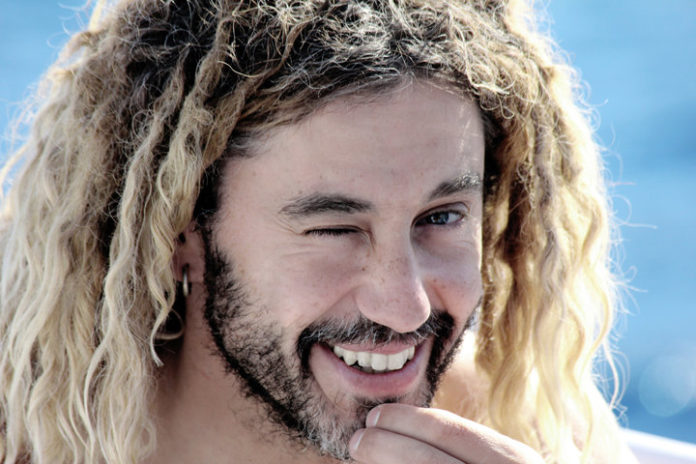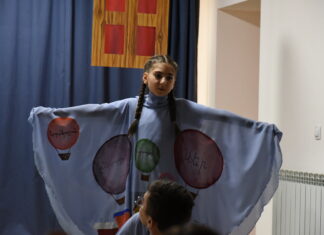YEREVAN / DAHAB, Egypt — Latvian singer and DJ Khoren (Horen) Stalbe was born on March 8, 1971, in Riga. In 1990 he founded the musical group “F*&k Art.” In the 1990s he worked for SWH radio as a DJ. The clip for his song For Black Man Christmas No Weekend was the first Latvian video to be shown on MTV. In 1995, the group won the Liepaja Amber competition. In 2002, he participated in the Eurosong 2002 competition and in a duo with Linda Leen tried to gain the right to represent Latvia in the Eurovision Song Contest. Latvia won Eurovision this year and won the right to host Eurovision next year. Since 2014, Khoren Stalbe has been the soloist and leader of the Riga Reggae band. In 2003 he published the book Halfway in Latvian on his Himalayan expedition and Nepal, which became a bestseller. From 2009 to 2013, he ran the Baltika diving club in the Egyptian resort of Dahab. In May 2011, he was named the world’s best underwater photographer by Underwater Photography in the Wide Lens category. At the end of last year he returned to Dahab with his family to continue underwater photographing.
Khoren, it was Ashot Grigoryan who wrote about you for the first time, which was a very pleasant surprise! How would you characterize your work?
Everything in my work, from painting as a child to music and cinema, the most important message is the protection of the environment and the idea that we are all brothers and sisters, regardless of race or religion. Each of my concerts begins with a long recitative, which ends with the words: “One sun and one earth! Two worlds are tearing me apart. The only thing I am absolutely sure of is that all the people around are siblings.” Since childhood, I have loved nature and this world very much. It seems to me that this world is the creation of the Lord, and we should treat it with care. I see this in terms of environmental protection. As for “STOP THE WAR” and other slogans that I use in my concerts, they are probably close in spirit to the Armenians, because Serj Tankian, the greatest musician from System of a Down, whom I hope to meet someday: in principle, he does very similar things and his message is the same as ours. For me, as an artist, the most important thing is to feel the message. Therefore, it makes no difference to me whether it is painting, music, dance or something else. The important thing is what meaning we put in it and no matter how it is, I always try to show the world the good, the positive side and the beautiful side. The ability to see beauty is a gift to look at the world with love. This is how I would describe my message to the world.
How did you get involved in underwater filming?
My mother is a hydrogeologist, and since I grew up with my mother in “splendid isolation,” we were traveling a lot. I spent all my childhood on expeditions with my mother and her colleagues on the lakes. At the age of four I knew how to do a chemical analysis of water. Along the equator, I traveled the whole world, or rather, not the world, but the underwater world, most of the most beautiful places in the world. Well, I am such a traveler, traveling to the underwater world is my mission and the most important journey of my life. I love documentaries, I filmed and participated in projects of underwater documentaries, about the lives of fish and so on, participated in the filming of several world records, worked with Alexei Molchanov, a world champion in freediving. I participated in several films as an actor and cameraman, two projects were in 2021, but my biggest adventure was 10 years or more ago, with a Russian film company for more than a month filming 3D underwater in Papua New Guinea, which was very difficult and painstaking. at that time, there were only five cameramen in the world who performed such work. Much has been done and much more needs to be done. I also, being half Armenian, would like to cooperate with Armenians with great pleasure, be it anywhere in the world or in Armenia.
Your name must have been difficult and unusual in Latvia?









